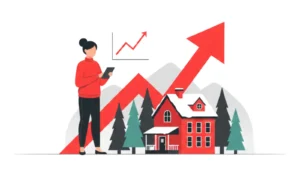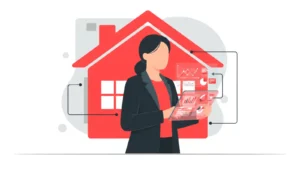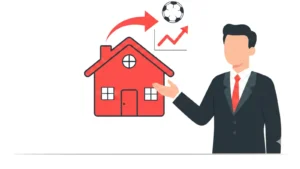Table of Contents
Updated : Feb 21, 2026
If you’ve been on the fence about Airbnb property management, you’re not alone.
With vacation rentals booming, it’s easy to get drawn in by stories of hosts making steady income or managing multiple listings efficiently. After all, the 2025 Statista report suggests an average of 47 nights booked per year at $119 per night, and property managers earning around $7,062. It proves that the Airbnb property management space has serious earning potential.
But behind those success stories is something you may not know—those late-night guest issues, pricing headaches, double bookings, constant cleaning, and managing guest calendars.
In this guide, we’ll walk you through the core skills every Airbnb property manager needs. Whether you’re just starting or looking to sharpen your edge, you’ll find actionable insights to help you manage smarter. Before getting into it, let’s understand what Airbnb property management is.
Airbnb Property Management: What is it?
Airbnb property management involves overseeing short-term rental operations in a way that maximizes revenue, enhances the guest experience, and ensures compliance with short-term rental regulations.
So, what role does a property manager have in Airbnb management?
A property manager supervises every operation that ultimately provides the best experience to the guests. From setting a dynamic price with the help of dynamic pricing tools to curating modern listings that attract different travelers, the manager is responsible for delivering a seamless stay while driving consistent returns.
Let’s break down the skills a property manager needs to have to thrive in this space.
Airbnb property management: Skills to look for
Beyond regulatory compliance, the Airbnb market is getting increasingly competitive, and the numbers prove it.
According to Airbnb’s Q4 2024 shareholder letter, the platform recorded a gross booking value (GBV) of $82 billion while the total bookings exceeded 491 million nights across the year.
Airbnb property managers must do more than manage to succeed.
Here’s a breakdown of key skills to focus on, the “why” behind each, and a roadmap to help you get started.
1. Revenue and price optimization
Aim for: Developing data-driven pricing strategies that respond to market trends and traveler demand with dynamic pricing tools.
Why: Traveler behavior is more flexible and unpredictable than ever, and managers who don’t adjust prices in real time often leave money on the table. Hosts who use dynamic pricing tools can see up to a 30-50% increase in revenue.
Roadmap: Invest in tools like Pricelabs to analyze the market and its fluctuations. You can track your properties’ performance against the market with PriceLabs Market Dashboard, which highlights key vacation rental KPIs, such as occupancy rates, ADR, booking window, length of stay, RevPAR, and average revenue.

PriceLabs Market Dashboard
Ready to unlock the power of data? Try PriceLabs Market Dashboards today and turn insights into action for your vacation rental success!
Try Now!2. Warm and friendly communication
Aim for: Exceptional and personalized bonding with guests. Communication should remain positive, timely, and clear before, during, or after their stay.
Why: Exceptional and positive communication strengthens trust, leads to 5-star ratings, and helps boost your visibility.
Roadmap: Automate repetitive queries with tools, personalize key touchpoints like welcome and check-in messages, and always offer guests the option to reach out directly for a human response.
3. Marketing and listing
Aim for: Crafting captivating Airbnb listings with clear, optimized property descriptions, high-quality visuals, unique strengths highlighted, and strategic placement of each listing. Market it on different social media platforms.
Why: Guests are likely to associate quickly with unique vacation rentals. A captivating description and a professional listing style, backed by reviews, will keep you ahead of the curve.
Roadmap: Click pictures in high definition that portray the best angle of the property. Refine listing titles and descriptions using some trendy keywords, such as “family-friendly” and “eco-friendly”. Ensure the keyword resonates with your target audience. Keep highlighting popular events near you by attaching a host guide to your Airbnb listing to get local attention.
Bonus read: Budget-Friendly Vacation Rental Marketing Strategies

4. Operational and process automation efficiency
Aim for: Channeling the ability to simplify, automate, and make daily operations such as maintenance, cleaning, check-ins, etc, more effective. Take the help of emerging technologies.
Why: Operational efficiency and automation will save time, reduce costs, minimize errors, and deliver a seamless experience.
Roadmap: Choose a property management system that syncs bookings across multiple platforms and facilitates scheduling. Investing in smart home gadgets, such as smart locks, can also be handy. For long-term partnerships, connect with agencies and maintenance teams that use modern tech to provide top-notch cleaning and maintenance services.
5. Regulatory compliance and risk management
Aim for: Complying with the regulations and staying alert while developing the capacity to navigate potential risks.
Why: Regulations are tightening in 2025, with the new regime and constant changes, property managers must stay updated on taxes, permits, and insurance-related guidelines.
Roadmap: Continue to refer to local ordinances and Airbnb policies. Keep a close eye on changing regulations in your market. To manage the risk that comes along with property management, buy insurance and install safety features, such as fire extinguishers, to make guests feel secure.
Airbnb Property Management: Challenges
Here are the potential challenges you may face:
1. Managing guest expectations
Guests expect instant communication, eco-friendly amenities, and a hassle-free experience. So, matching these expectations without compromising the service standards is a big challenge.
Also, tackling issues such as delay in handling complaints, late cancellations, damage to property situations, or, in general, handling tough guests is challenging.
2. Dealing with regulations
Short-term rental laws are complex and vary by location. For instance, New York enforced a new short-term rental law that will provide communities with the tools necessary to track and analyze how short-term rental units impact their local housing market.
Another law, Local Law 18, also requires hosts to register with the Mayor’s Office of Special Enforcement for rentals, even if they are for less than 30 days. The regulations vary within the state; for example, unlike New York, states like Florida don’t mandate such registration, just for a business. As a result, the property manager has to stay vigilant about the regulations.
3. Balancing expenditure and scalability
Airbnb property management can put some severe strain on your budget. High cleaning, maintenance, and sophisticated gadgets or tools can scale different operations, but this can also elevate the expenditure.
Balancing such expenses is tough, especially if the property manager has a diverse property portfolio.
Tips to counter the challenges in Airbnb property management
Below are some of the pro tips that you can consider to tackle the challenges while you are in Airbnb management:
Tips to match guest expectations
- Work on your communication skills and avoid escalating situations. Try conducting a mock drill with your associates.
- Automate the processes to meet the guests’ instant service demand. If you already have a system in place, ensure the response time is quick to guests’ queries.
- Improve the in-house regulations and make them clear to guests to minimize the risk of any misunderstandings.
Tips to deal with regulations
- Monitor official websites that showcase relevant permit and tax filing guidelines.
- Secure permits early and leave no official procedures pending to avoid paying a fine.
- Stay updated with legal changes in the laws to avoid getting banned or fined.
Tips to manage expenditure and improve scalability
- Automate processes. For example, automatic check-ins can save time and reduce expenses.
- Use smart locks and other gadgets as scalable solutions.
- Take advantage of juggling between multiple properties by highlighting unique aspects—for instance, a pet-friendly site, fast wifi, and so on.
Final Words
To recap –
- Airbnb management might be competitive, but it has scope for a massive revenue boost.
- Having exceptional communication, followed by regulatory compliance, risk management, and investing in technology to streamline operations, offers a complete and legally safe guest experience.
- Improve and scale operations to meet the changing demands of guests.
- Tools like PriceLabs empower property managers with real-time insights, giving them a competitive edge and maximizing revenue.
Frequently Asked Questions
What does an Airbnb property manager do?
An Airbnb property manager optimizes listings, facilitates smooth communication with guests, streamlines operations, and ensures guest satisfaction while maintaining booking profitability.
Are Airbnb management fees high?
In 2025, service fees for Airbnb property managers range from 20% to 30%. Partial services fall between 10% and 15%, and rural areas charge can extend up to 40%.
Which is the most important skill for an Airbnb property manager?
It’s subject to people’s perception, but one crucial skill that cannot be neglected is “guest communication”. Timely, empathetic, and personalized communications can foster good results. So, if a property manager is good at this, the chances of a high rating, a boost in Airbnb’s algorithm ranking, and repeat bookings are not far off.







